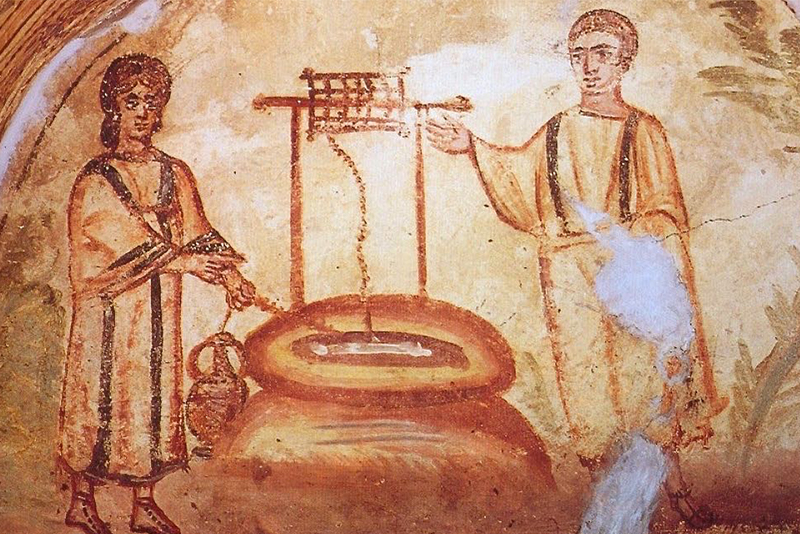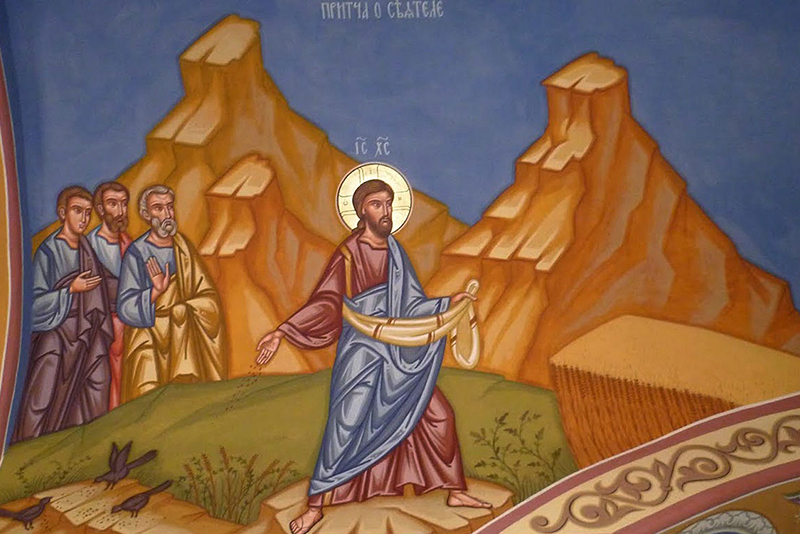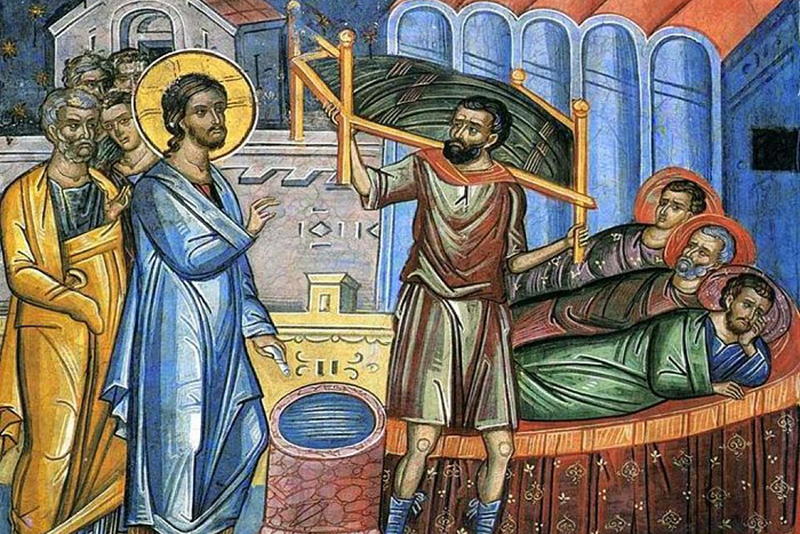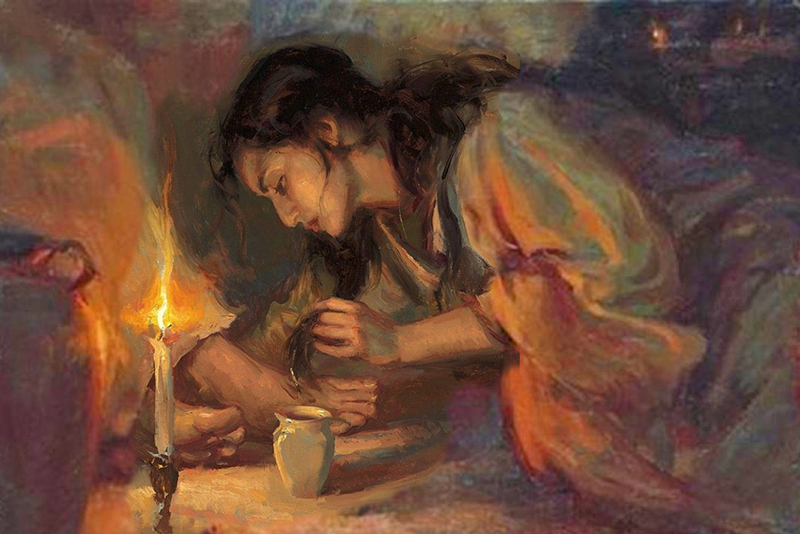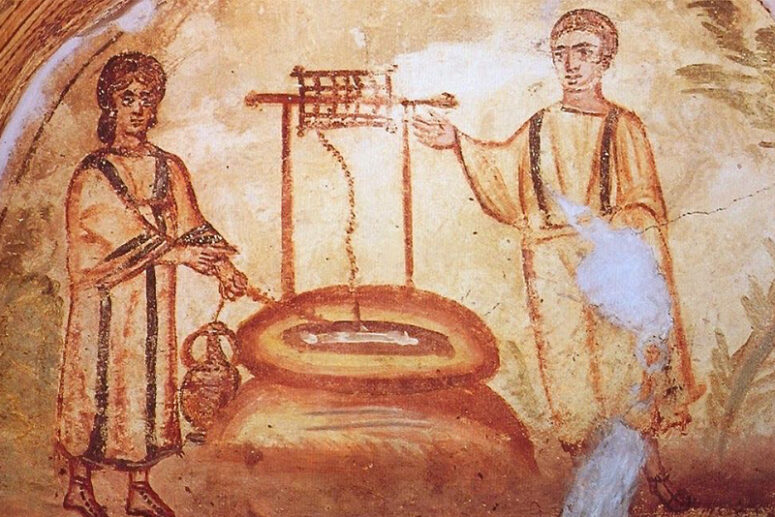
Like a diamond, the story of Jesus Christ and the Samaritan woman has many sides to it. Here, we will concentrate on one specific aspect: we will look at it as an example of God’s grace and mercy. In the beginning, let us recall the verses from the Gospel of John.
When a Samaritan woman came to draw water, Jesus said to her, “Will you give me a drink?” His disciples had gone into the town to buy food. The Samaritan woman said to him, “You are a Jew and I am a Samaritan woman. How can you ask me for a drink?” For Jews do not associate with Samaritans.
Jesus answered her, “If you knew the gift of God and who it is that asks you for a drink, you would have asked him and he would have given you living water. “Sir,” the woman said, “you have nothing to draw with and the well is deep. Where can you get this living water? Are you greater than our father Jacob, who gave us the well and drank from it himself, as did also his sons and his livestock?” Jesus answered, “Everyone who drinks this water will be thirsty again, but whoever drinks the water I give them will never thirst. Indeed, the water I give them will become in them a spring of water welling up to eternal life.” The woman said to him, “Sir, give me this water so that I won’t get thirsty and have to keep coming here to draw water.” He told her, “Go, call your husband and come back.” “I have no husband,” she replied. Jesus said to her, “You are right when you say you have no husband. The fact is, you have had five husbands, and the man you now have is not your husband. What you have just said is quite true.” “Sir,” the woman said, I can see that you are a prophet. Our ancestors worshipped on this mountain, but you Jews claim that the place where we must worship is in Jerusalem.” “Woman,” Jesus replied, “believe me, a time is coming when you will worship the Father neither on this mountain nor in Jerusalem. You Samaritans worship what you do not know; we worship what we do know, for salvation is from the Jews. Yet a time is coming and has now come when the true worshippers will worship the Father in the Spirit and in truth, for they are the kind of worshippers the Father seeks. God is spirit, and his worshippers must worship in the Spirit and in truth.” The woman said, “I know that Messiah” (called Christ) “is coming. When he comes, he will explain everything to us.” Then Jesus declared, “I, the one speaking to you—I am he.” Just then his disciples returned and were surprised to find him talking with a woman. But no one asked, “What do you want?” or “Why are you talking with her?” hen, leaving her water jar, the woman went back to the town and said to the people, “Come, see a man who told me everything I ever did. Could this be the Messiah?” (John 4:7-29)
The Samaritan woman does not come to the well in the morning like all married women did. She comes at the hottest hour at mid-day because she does not want to bump into them. In contemporary terms, we might call her personal life “problematic” and full of challenges, and in a patriarchal society like hers, most other women treated her with disdain, out of concern for their own married lives. She would have been glad not to come to the well at all. She asks Him that she would not get thirsty to have to come to the well to draw water, but her thirst keeps forcing her to come.
Thirst is a prominent theme of this narration and the scripture in general. To quote the biblical prophet Isaiah (55:1),
“Come, all you who are thirsty, come to the waters; and you who have no money, come, buy and eat! Come, buy wine and milk without money and without cost.”
The Samaritan woman is thirsty for water, but she is also craving for something else that is at least as essential to her life.
She has had five husbands, but not because she was widowed but likely as a result of the relationships that did not last. None of the men she met was able or willing to respond to her need for love, appreciation and protection. All had taken advantage of her need and went on with their lives. The hope and inspiration that she experienced at the beginning of every new relationship ended in disappointment; her whole life was like drawing water that did not quench the thirst or quenched it only for a short time. She then accepted a life with someone who would at least keep her company, but not as her husband.
The Gospel’s story has many layers of meaning. The first layer is historical – its story is about a certain woman with a face and a name whom Jesus met at a specific time and place. But it also has another dimension. It is the story of a person who is looking for happiness, or at least for some relief or consolation. She cannot find any, because the only way one can find genuine happiness is by living with God.
As Prophet Jeremiah wrote,
“My people have committed two sins: They have forsaken me, the spring of living water, and have dug their own cisterns, broken cisterns that cannot hold water. (Jeremiah 2:13).
The poor woman who was looking for water in the broken cisterns finally meets God.
Jesus tells her the truth about her life, which is anything but flattering. But obviously, his attitude was starkly different from that of the other women at the well. He was critical of her disorderly life, but his disparagement leads to an unexpected result. It does make her feel rejected, belittled or embittered. Conversely, it inspires her to go to the fellow villages – the very same people that she had been trying to avoid by coming to the well at mid-day – and preach to them with courage. Her past life – things that were the reason for her guilt and condemnation – turned into something else. Jesus saw through her, but he did not condemn or reject her. Her fall, her past sins and dishonour – and likewise the pains that she had suffered from others – were episodes in her glorious salvation and the salvation of the whole world.
As Joseph says to his brethren in the book of Genesis,
“You intended to harm me, but God intended it for good.” (Genesis 50:20).
The transgressions that she committed and the pains that she had suffered God intended for her good. He forgives her transgressions; moreover, she meets Christ and discovers that her whole life had been leading her towards that meeting.
Some people meet Christ under similar circumstances. Having reached their lowest point they appeal to Him, and He pulls them out of their abyss, while and the example of their fall and salvation becomes a lesson for multiple others. This may happen to a hopeless drug user or a criminal in prison – they repent before God, and God redeems their transgressions and directs them to salvation. Or an abortion doctor who realises the evil that he had been doing and becomes an opponent of abortion. God accepts his repentance and puts his experience to use to affirm life.
One bewildering feature of the New Testament is that it makes no secret of the infirmities, falls and transgressions of God’s disciples. The Apostles have argued over the right to sit on the right and left hand of Christ at the table; they fled when Christ was captured, Saint Peter disowned Christ three times, while Saint Paul has been a persecutor of Christians. Why do the apostles tell us this? Does it undermine their authority as the teachers of others? Normally, we will want to present as positive an image of ourselves as possible and to remain silent as much as possible about our sins and failures. Why do the apostles not do the same?
Apostle Paul explains it this way:
“But for that very reason I was shown mercy so that in me, the worst of sinners, Christ Jesus might display his immense patience as an example for those who would believe in him and receive eternal life.”
(1 Timothy 1:16)
The good news is that the people who have fallen and disgraced themselves, who are lost and exhausted can all come to our Lord Jesus Christ, and He will turn the story of their fall into a history of His mercy.
Through God’s mercy, these broken and lost people, who bear the pain of their sins and the sins of others, find dignity, joy and a new life. When they share their life with others it becomes like the water that Christ gives to them and that becomes in them a spring of water welling up to eternal life.
Translated by The Catalogue of Good Deeds
Source: https://foma.ru/vodyi-blagodati.html

